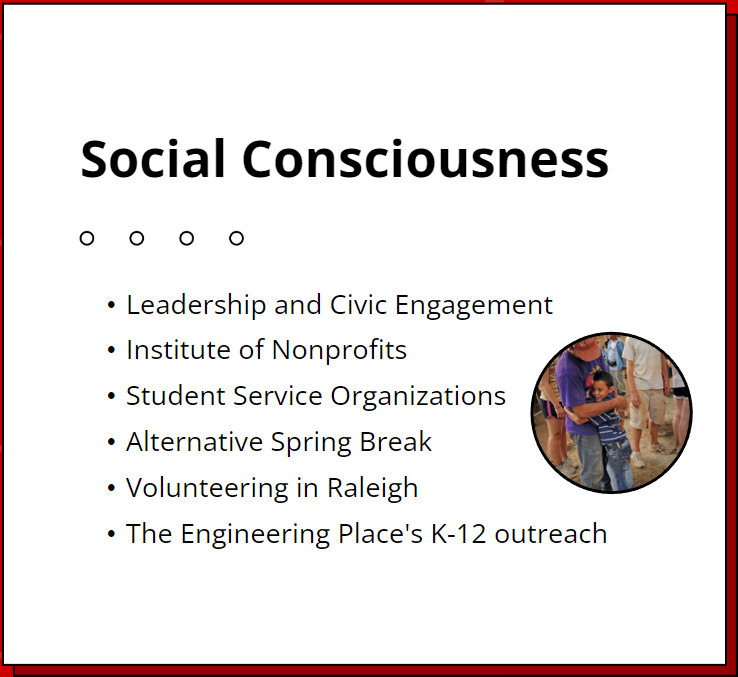
Scholars choosing any one of the following options toward the Social Consciousness competency must substantiate and contextualize how the course’s subject matter, approach, and/or learning objectives advanced their understanding of their chosen Grand Challenge.
Nonprofit Studies Minor from the Institute of Nonprofits
The interdisciplinary Minor in Nonprofit Studies is designed to prepare students for careers in the nonprofit and social sectors, in both paid and volunteer positions.
GEP Co-Requisites: Global Knowledge and U.S. Diversity Courses
Requirements can be fulfilled by taking one or more of these courses which focus on ethics, diversity, inclusion, equity, systems of power, privilege, and oppression as well as how cultural exchanges lead to societal impact all related to the Grand Challenges. Based upon their rationale and learning objectives, General Education Program (GEP) courses that are designated as either Global Knowledge or U.S. Diversity are sufficient. Courses not listed must be approved at the discretion of the Scholar’s GC Mentor or the GCSP. In cases of uncertainty, the GC Mentor should consult with the GCSP for approval.
E 490: Preparing for the Fundamentals of Engineering (FE) Exam and Professional Licensure
Along with graduating with your ABET-accredited engineering or computer science degree, the first step toward professional licensure is passing the FE exam. E 490 is an exam prep course for seniors in engineering majors planning to take the FE exam. The licensure process is how engineers demonstrate their technical competence, ethical decision-making, and acceptance of professional responsibility for the public’s safety and welfare.
Ethics Courses
Courses that teach ethical and professional responsibilities (in engineering situations but not always) and that teach Scholars how to make informed judgments, which must consider the impact of engineering solutions in global, economic, environmental, and societal contexts, are eligible to satisfy this competency. Ethics courses must also somehow relate to the Scholar’s chosen Grand Challenge.